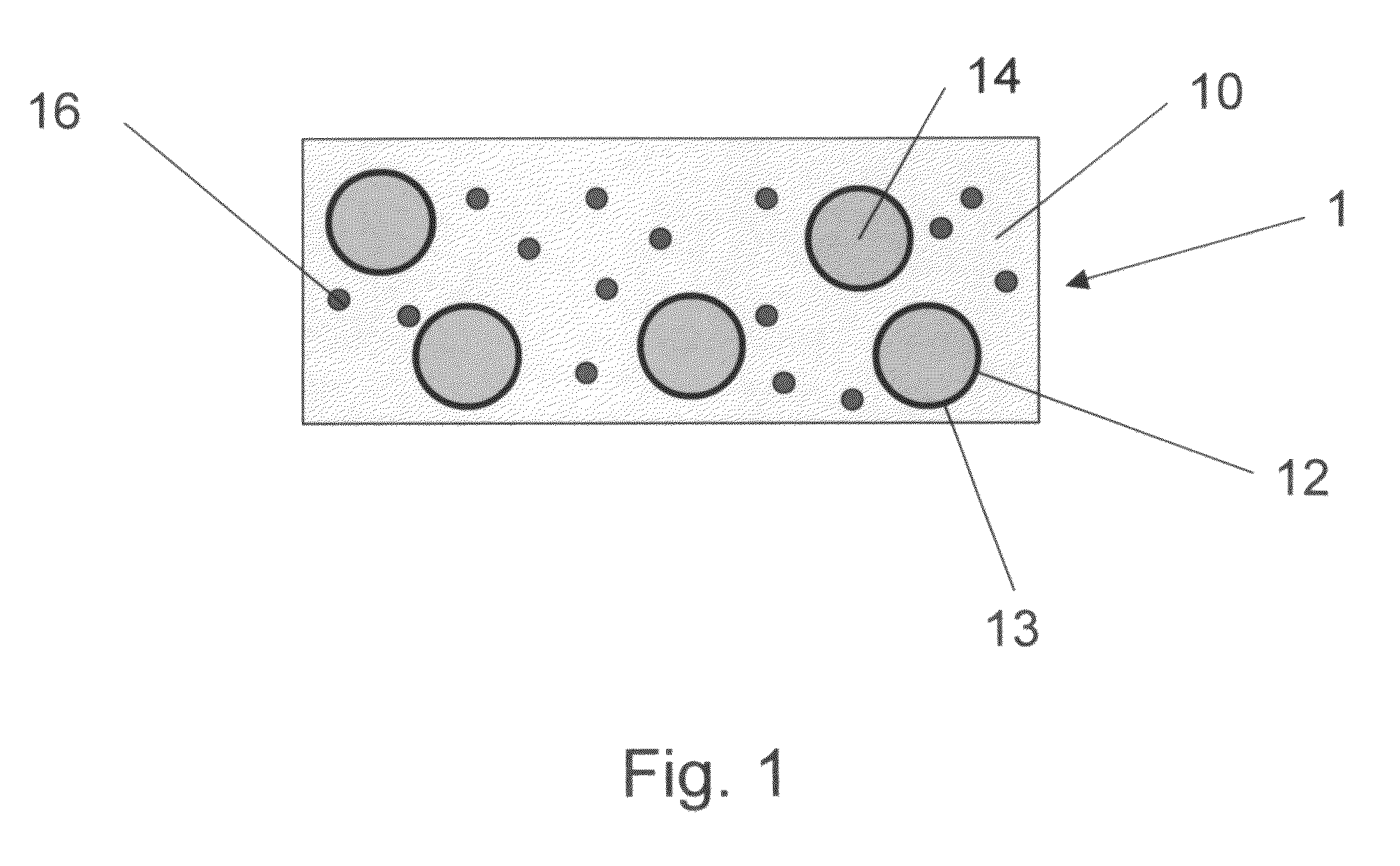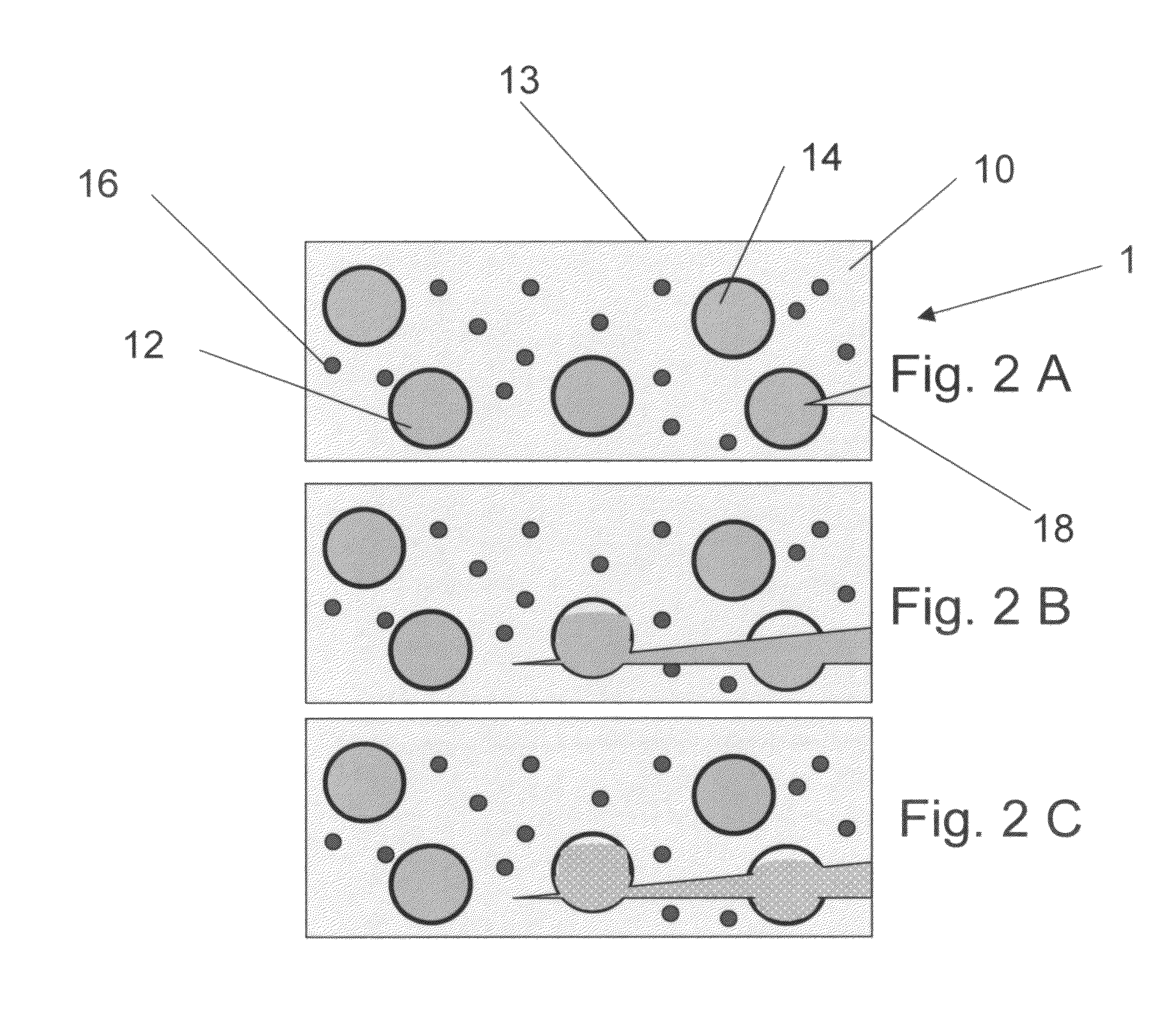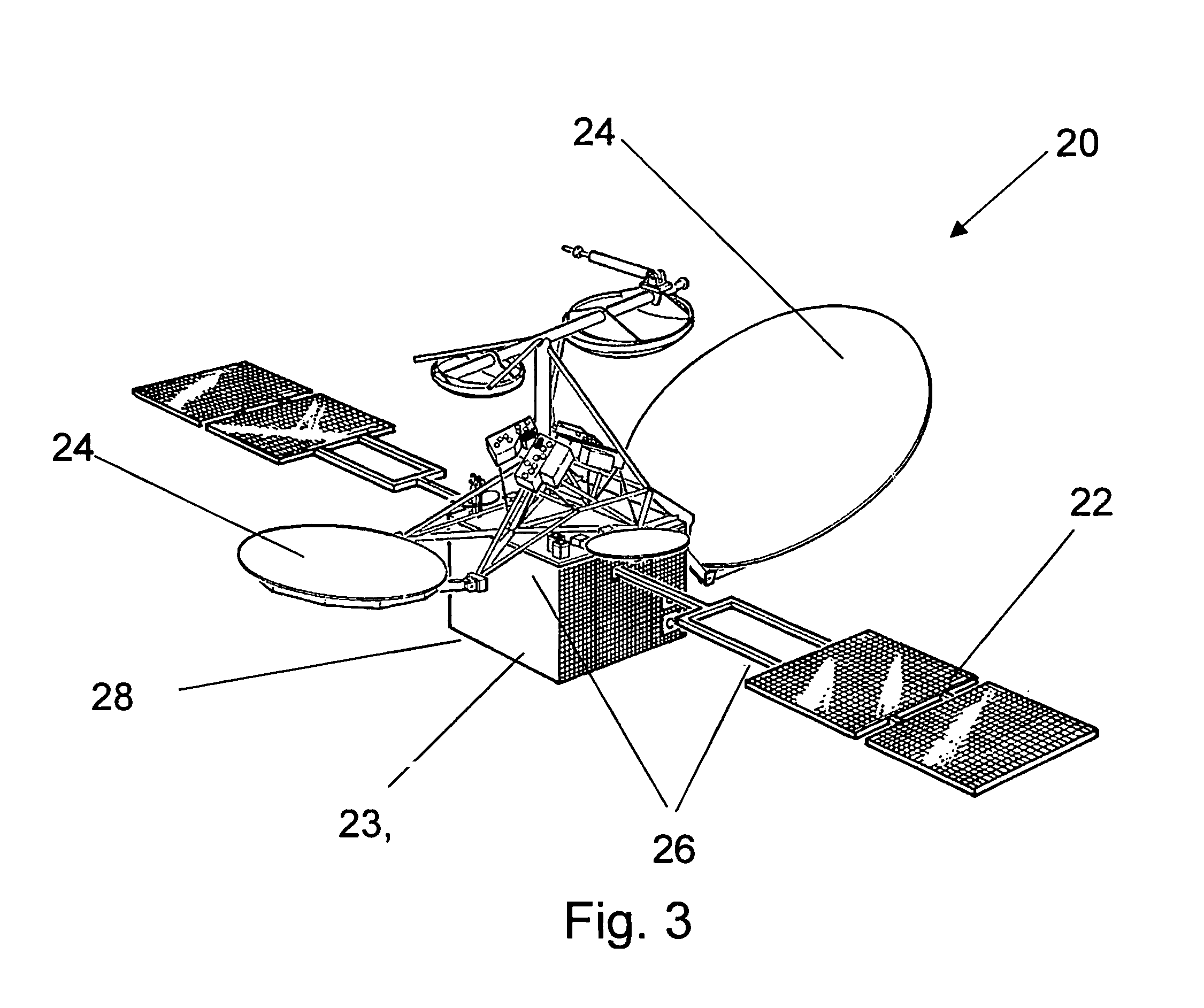Self healing composite material and method of manufacturing same
a composite material and self-healing technology, applied in the field of materials, can solve the problems of drawbacks of existing technology and the removal of devices using self-healing materials
- Summary
- Abstract
- Description
- Claims
- Application Information
AI Technical Summary
Benefits of technology
Problems solved by technology
Method used
Image
Examples
first embodiment
[0056]Considering the above factors, 5-ethylidene-2-norbornene (5E2N) was selected as the healing-agent 14 in the This monomer healing-agent has the following characteristics that make the composite material system suitable for space applications: The melting temperature of the 5E2N is −80° C. and its boiling temperature is 146° C. As such, this monomer healing-agent has a much larger liquid range than conventional DCPD. 5E2N is less toxic than the DCPD monomer. The polymerization time of 5E2N is less than 1 minute at 40° C. This provides a fast healing rate, capable of meeting the request for space applications.
[0057]A satellite 20 is illustrated in FIG. 3. The satellite 20 supports solar panels 22, stabilizing motors or jets (not shown), a power regulator and storage unit 23, telecommunications antennas 24 and on-board telecommunications and control electronics. These components of the satellite 20 depend on the integrity of the frame 26 and housing 28 that interconnects them, an...
second embodiment
[0060]In the invention, the catalyst 16 is also encapsulated in a of microcapsules 12. It has been found that the encapsulation of the catalyst 16, preferably in solid state, as a dispersion in a polysiloxane with poly urea formaldehyde while having a lower catalyst-to-monomer healing-agent loading (c.a. 0.1%) resulted into a more stable composite material 1. Furthermore, this concomitant use of both monomer healing-agent and catalyst microcapsules provided a better homogeneity of the composite material 1 than when the catalyst 16 is not encapsulated.
third embodiment
[0061]In the invention, shown in FIG. 4, the same healing-agent 14, 5E2N, is infused within hollow fibers 29 typically used in reinforced composite materials. Although this provides an alternative solution to the microcapsules 12, the use of the microcapsules 12 is preferred.
PUM
| Property | Measurement | Unit |
|---|---|---|
| melting point | aaaaa | aaaaa |
| boiling point | aaaaa | aaaaa |
| boiling point | aaaaa | aaaaa |
Abstract
Description
Claims
Application Information
 Login to View More
Login to View More - R&D
- Intellectual Property
- Life Sciences
- Materials
- Tech Scout
- Unparalleled Data Quality
- Higher Quality Content
- 60% Fewer Hallucinations
Browse by: Latest US Patents, China's latest patents, Technical Efficacy Thesaurus, Application Domain, Technology Topic, Popular Technical Reports.
© 2025 PatSnap. All rights reserved.Legal|Privacy policy|Modern Slavery Act Transparency Statement|Sitemap|About US| Contact US: help@patsnap.com



